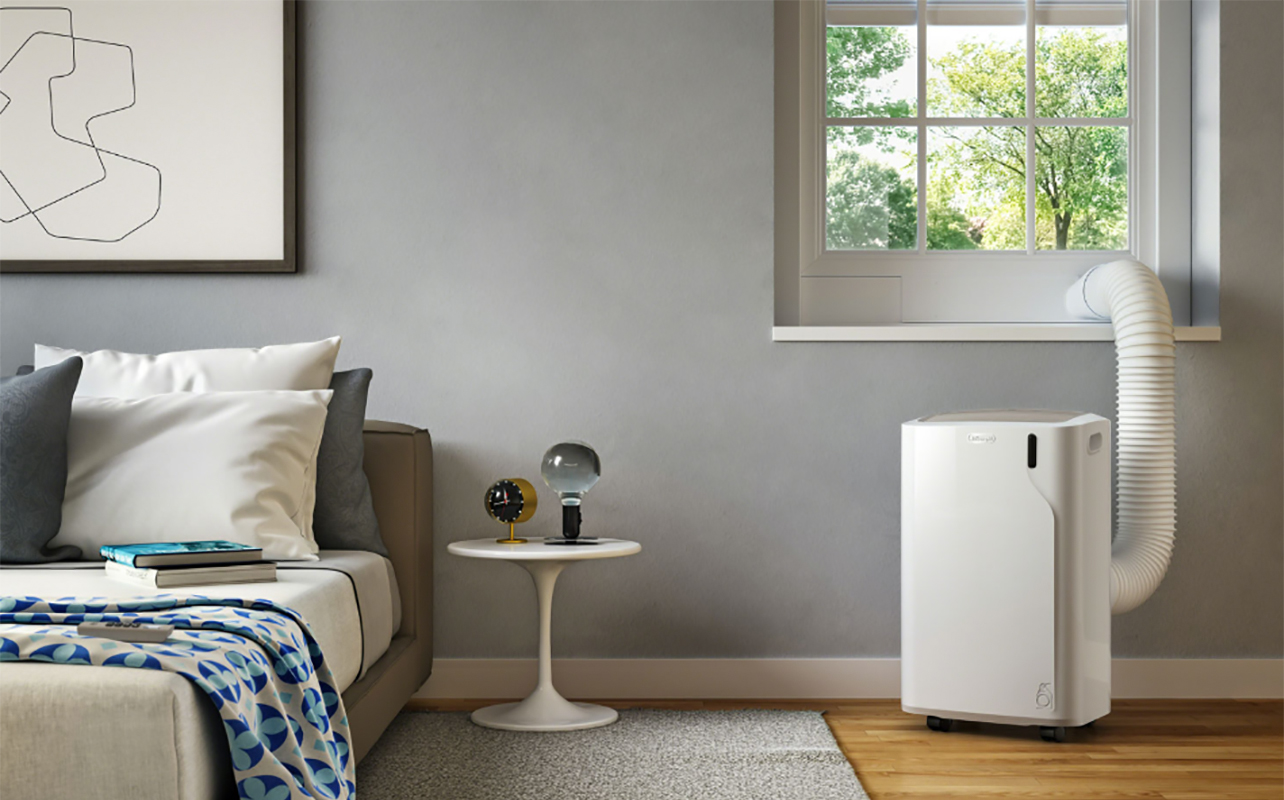
Air conditioners are a must for the summer months, especially if you live somewhere that gets especially hot and humid. And yes, this includes many Canadian provinces. Keeping your home cool is about more than just comfort. It’s also about preventing mold and mildew, damage to furniture, and exacerbated health issues, like symptoms of asthma or allergies. But your air conditioner or HVAC system might end up having a musty smell when you turn it on and you can’t figure out why. Is this mold? Bacteria? Is there a drainage issue?
It could be any of these things. Here, we’ll help you understand why your air conditioner smells musty, including potential causes. We’ll also provide tips on fixing common issues and, most importantly, on how to prevent it from happening again, or in the first place.
What a musty smell for your AC really means
A musty smell from an air conditioner, including a portable, window, mini split, or even HVAC system, is like a damp odour that can be caused by the accumulation of water or mold and mildew. It smells similar to dirty socks or a gym locker or bag with sweaty clothing inside. You might smell something like this in an area of the home like a basement that has poor ventilation, especially if it gets very hot. The scent is more than just unpleasant. It could signal a bigger problem, including mold build-up or a potential leak.
Common causes of musty AC or HVAC smells
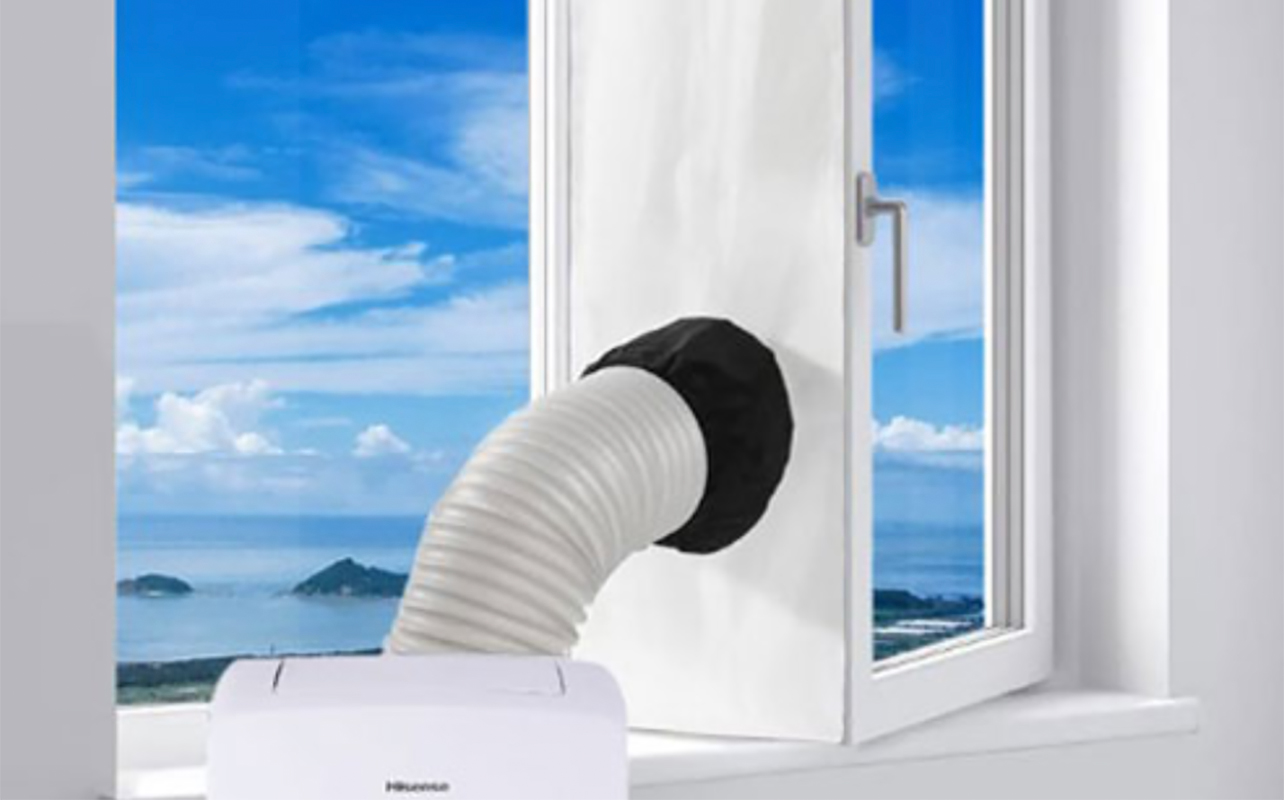
Keep in mind that when you turn on a new AC unit for the first time, it can smell musty for the first day or so. But that should go away. If the smell isn’t related to a new unit, or it lingers beyond a few days, there are a few common causes. This pertains to all types of air conditioners, including a portable air conditioner, window air conditioner, or HVAC system.
Mold or mildew: This can accumulate in the evaporator coils or ducts. Over time, it will eventually start to cause a musty smell.
Clogged or dirty filters: If the filter hasn’t been changed or it has become clogged, it can start to smell unpleasant. It can also prevent the evaporator coils from working properly to remove humidity from the air and send the cooler air back through the vents.
Full or stagnant drain pan: If you have a portable AC that drains into a pan at the back of the unit and you haven’t emptied it in some time, that water can start to smell.
High indoor humidity levels: It’s still possible for your home to have high humidity levels, even with an air conditioner. This can result in a foul, musty smell.
Poor airflow or ventilation: If a portable or window AC isn’t vented properly, this can result in that musty smell.
How to eliminate a musty smell in your air conditioner
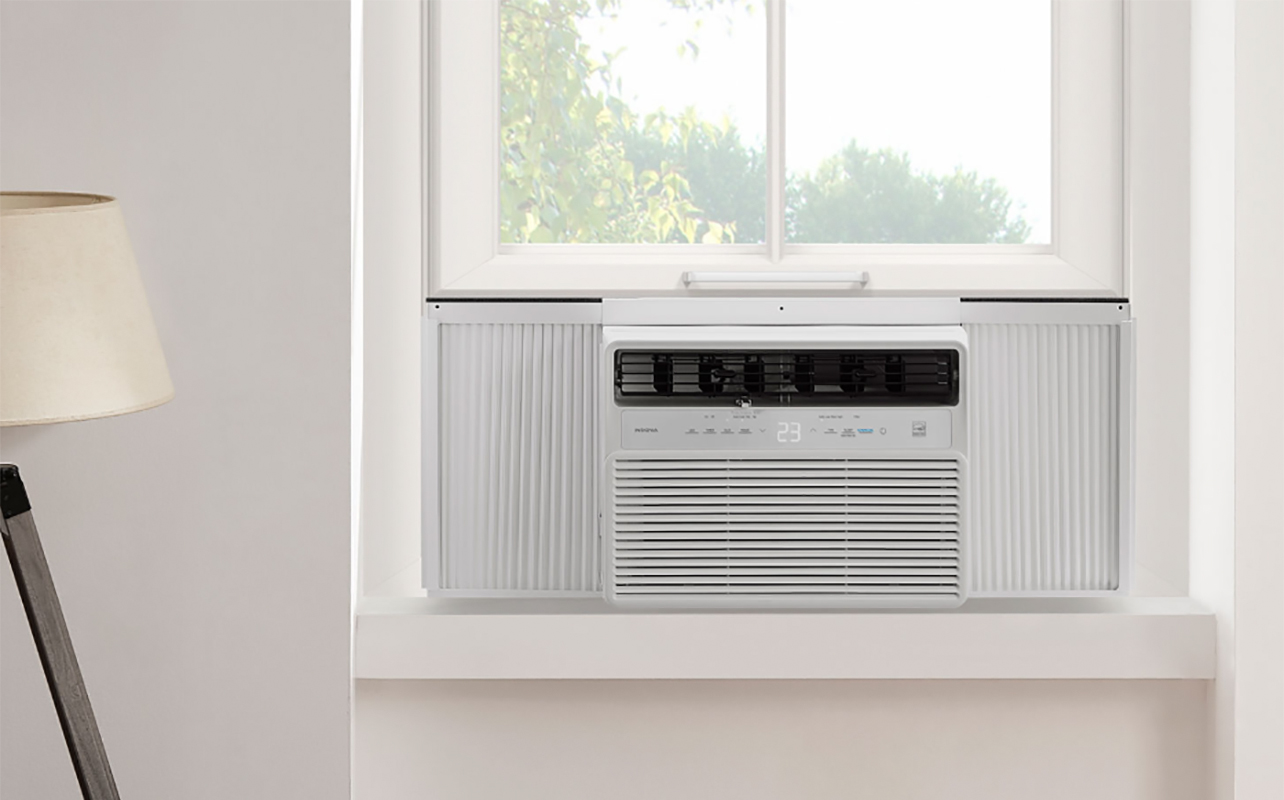
There are a few steps you can take to try and first diagnose the issue then eliminate the smell.
1.Turn off and unplug the unit.
2.Remove and clean or replace the filter.
3.Check and drain the condensation pan if it has one.
4.Use a coil cleaner or mild disinfectant.
5.Double check that there’s adequate airflow through unblocked vents.
If you find that the issue is related to high indoor humidity levels, you might want to consider getting a dehumidifier to place in the most offending room or level. Some homes, for example, remain hot on the upper level while the main level is comfortably cool because of the venting system. Many homes still have warmer basements even with AC on. You can get portable units that you can move around or something larger for the most offending area of the home. See our dehumidifier buying guide to learn about the options and find the best one to suit your home.
Musty smell in central HVAC systems
The above methods work for portable or window air conditioners, but what if you have a central HVAC system for heating and cooling? There are steps you can take to diagnose a musty smell or other common central air conditioning issues before calling a professional.
Check the ducts for mold build-up or excess moisture. If you can’t visibly see any mold or blockages and other methods don’t help, consider calling a professional for duct cleaning.
Look for a blocked condensate line. This small pipe typically runs from the inside of the house to the outside where the air conditioning unit resides. Water from the drip pan drains into a storm drain or landscaping. If there’s a blockage, mold, mildew, and sludge can build up. The result? That musty smell.
How to prevent musty AC smells in the future
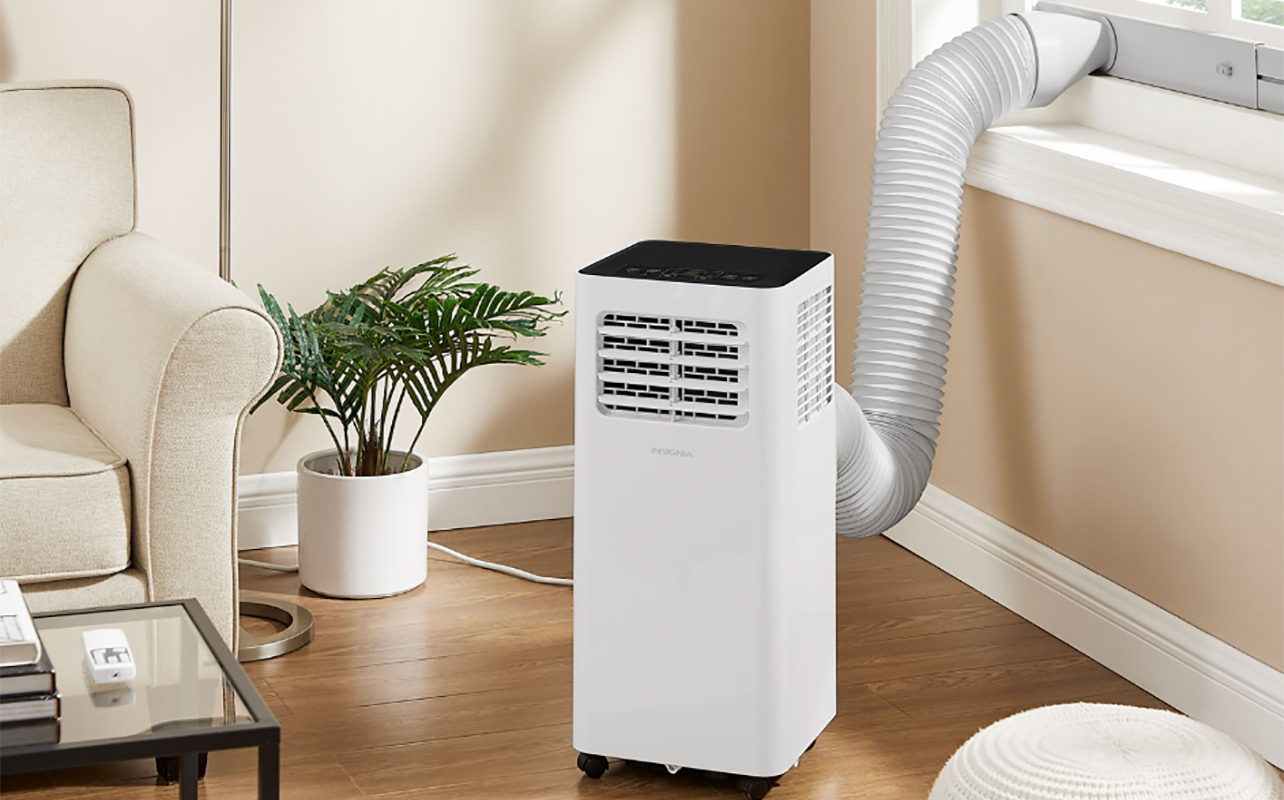
Once you have figured out the issue, or maybe you want to be proactive in preventing it from happening in the first place, what can you do? Proper maintenance and ensuring the proper conditions in the home are key.
Replace filters regularly. Check the instruction manual for your specific air conditioner model and follow the guidance for when to replace filters. This is usually every one-to-three months. App-connected models might send notifications once it’s time to replace or clean a filter. Don’t ignore these.
Keep humidity below 60 percent indoors. This is the safe level of humidity for homes to ensure that mold and mildew cannot form. As per above, this might require investing in a dehumidifier. These monitor the humidity in the room and run to maintain the proper level. Many intelligently run only when needed to keep humidity levels within a safe zone.
Check the drain pan. If the AC unit has a drain pan, don’t just empty it but also check it for cracks or leaks. This pan, which is under the evaporator coils, collects water droplets as humidity is removed from the air. Over time, it can experience regular wear and tear. Even if you empty it out, give it a periodic thorough clean with soapy water to prevent mold build-up.
Check evaporator coils. These work to remove heat from the air. But mold can accumulate on them over time. Check for mold and clean if detected.
Ensure airflow isn’t restricted. Make sure that you don’t have furniture or other items blocking the vents or the air conditioner’s airflow itself. Confirm that the vents are also open to ensure effective airflow.
Run “fan only” mode after cooling to dry out components. Try running this mode if you know how to do so to help dry the components out after you run the AC. This may help prevent mold.
Schedule an annual HVAC tune-up. It’s advisable to have your HVAC system tuned up at least once a year. Check with the company that installed it and see if you can schedule a maintenance visit, ideally in the spring just before the hottest summer months. Through the maintenance process, they will be able to diagnose and fix any isses.
Keep the air fresh in your home
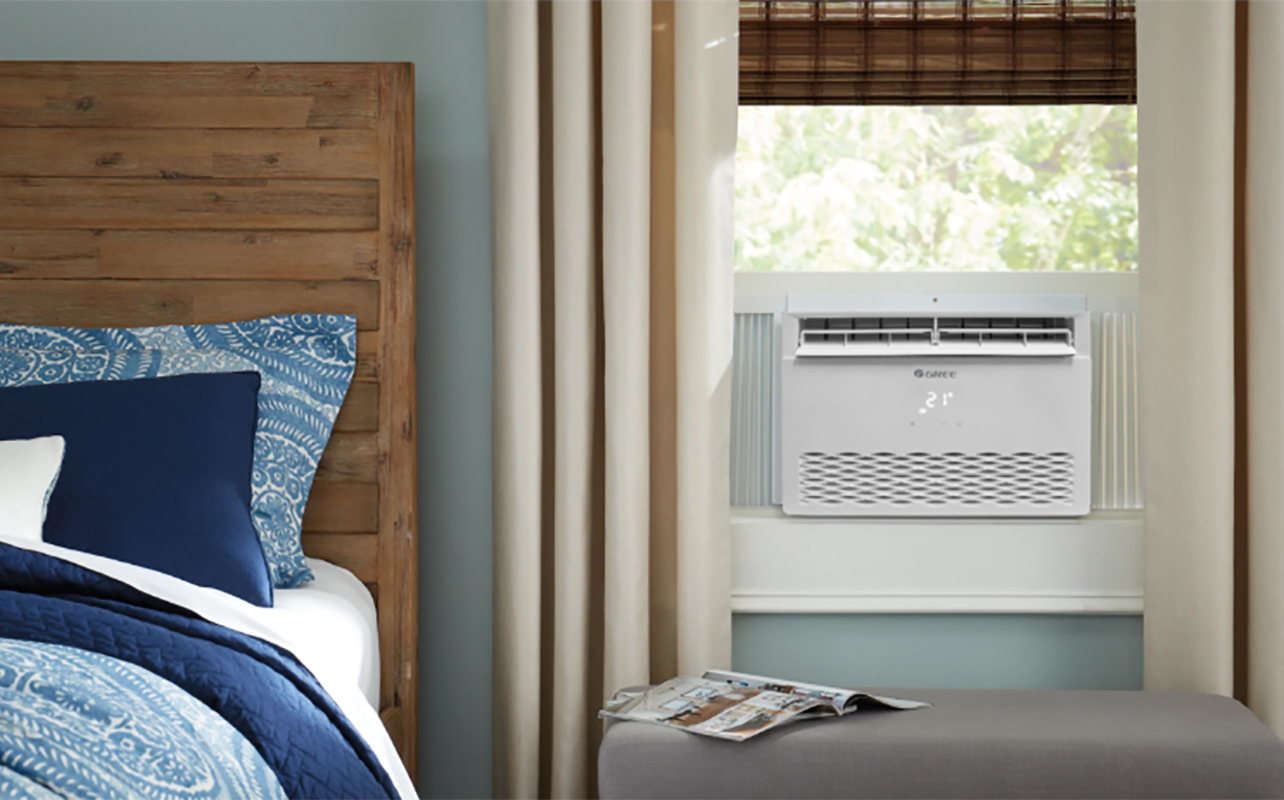
With the right troubleshooting steps and proper maintenance, an air conditioner can keep your home cool and less humid throughout the hot summer months. Even with proper maintenance, it’s a good idea to schedule a tune-up and check every year to ensure your AC unit continues to run as it should. This will also help prevent causes of musty smells.
Ready to upgrade your AC or add air conditioning to your home? Check out a wide selection of air conditioners at Best Buy Canada, and see our air conditioner buying guide to help you choose the right one for your home.





